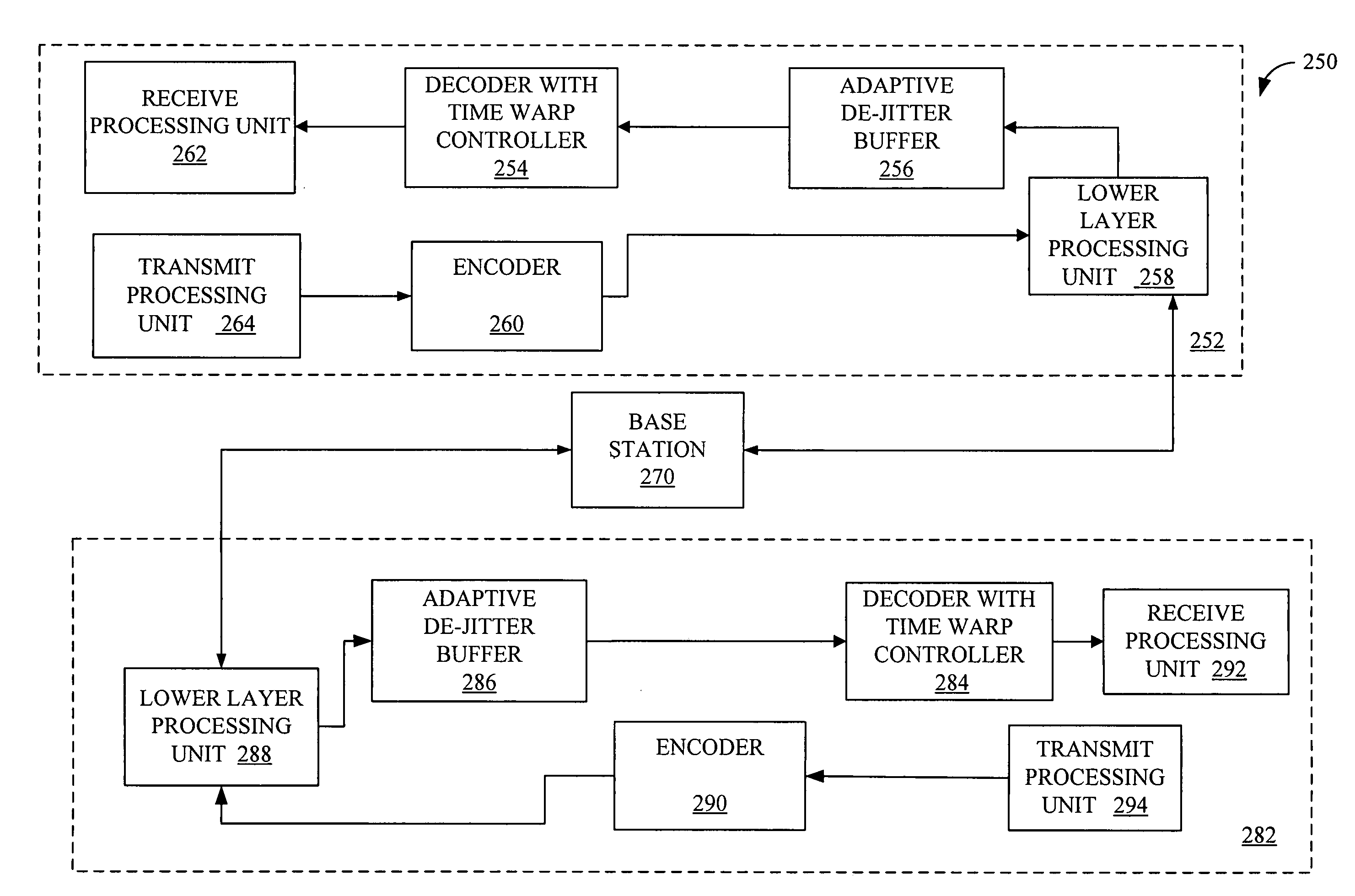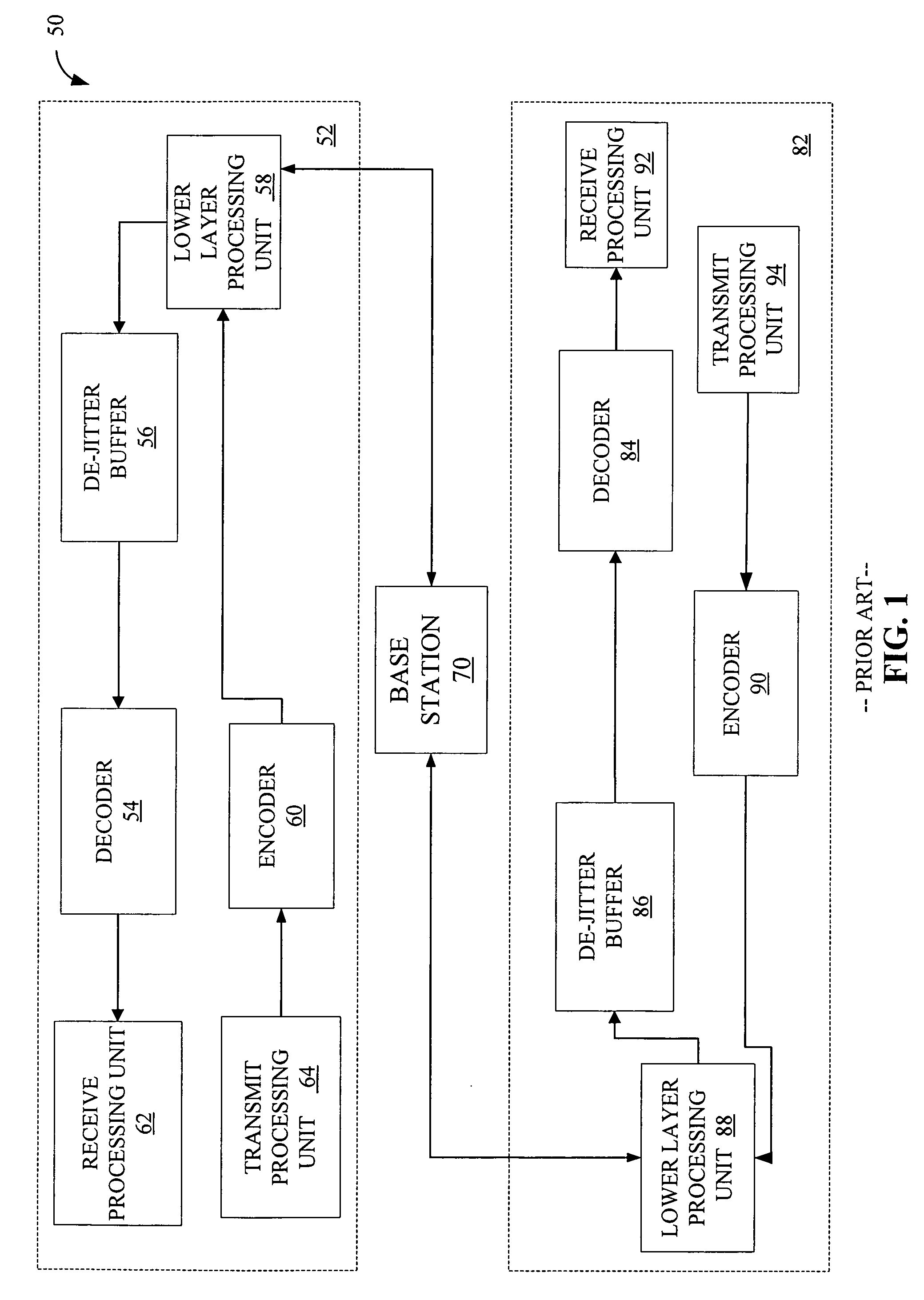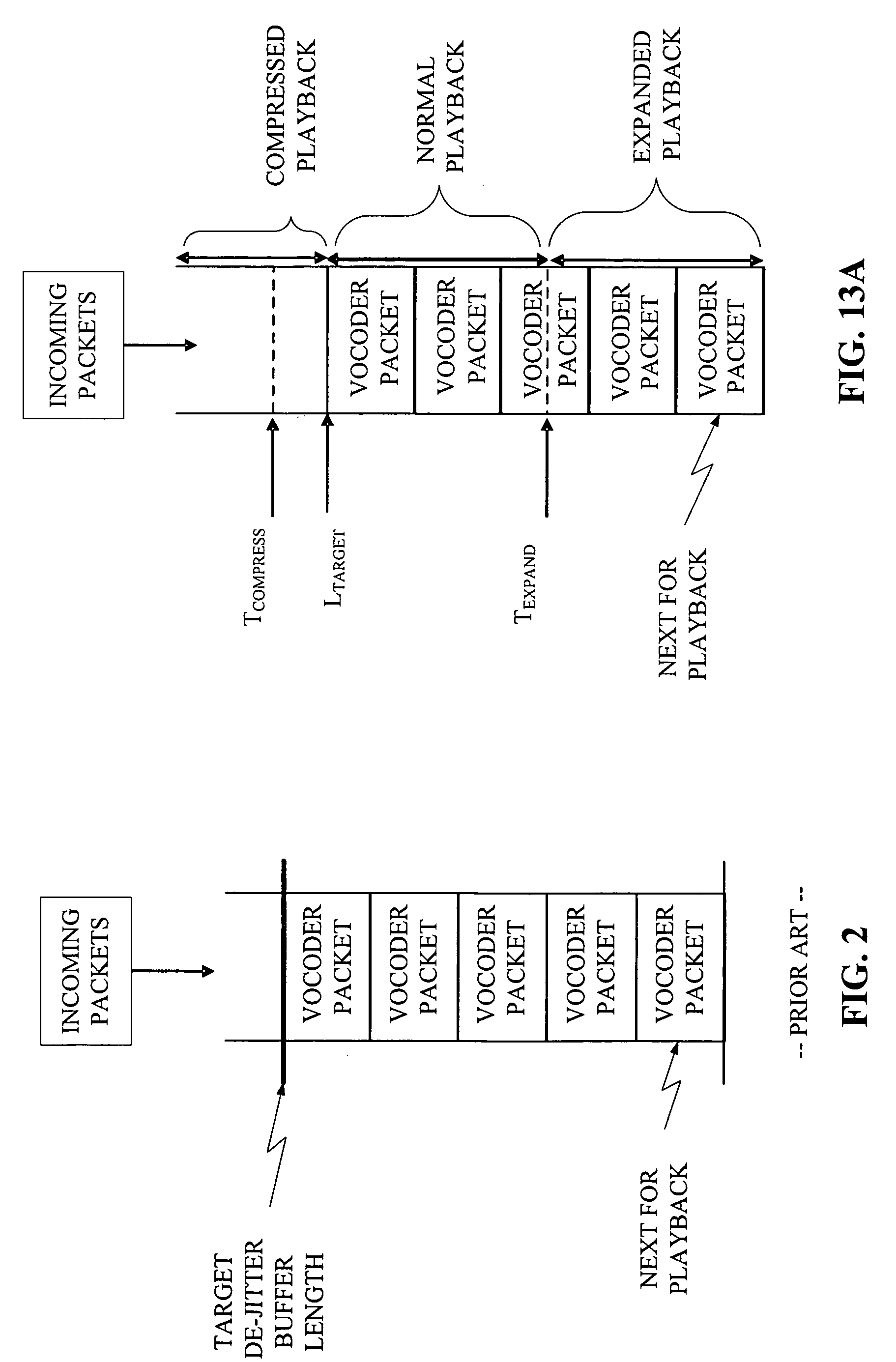Method and apparatus for flexible packet selection in a wireless communication system
a wireless communication system and packet selection technology, applied in the field of wireless communication systems, can solve problems such as packets that would otherwise be expanded to not be expanded, packet down) the audio, and packet down the quality
- Summary
- Abstract
- Description
- Claims
- Application Information
AI Technical Summary
Benefits of technology
Problems solved by technology
Method used
Image
Examples
Embodiment Construction
[0051] In packet-switched systems, data is formed into packets and routed through a network. Each packet is sent to a destination in the network, based on an assigned address contained within the packet, typically in a header. The end-to-end delay of packets, or the time it takes a packet to travel within the network from a first user or “sender” to a second user or “receiver” varies, depending upon channel conditions, network load, Quality of Service (QoS) capabilities of the system, and other flows competing for resources among other things. Note, for clarity the following discussion describes a spread-spectrum communication systems supporting packet data communications including, but is not limited to Code Division-Multiple Access (CDMA) systems, Orthogonal Frequency Division Multiple Access (OFDMA), Wideband Code Division Multiple Access (W-CDMA), Global Systems for Mobile Communications (GSM) systems, systems supporting IEEE standards, such as 802.11 (A,B,G), 802.16, etc.
[0052...
PUM
 Login to View More
Login to View More Abstract
Description
Claims
Application Information
 Login to View More
Login to View More - R&D
- Intellectual Property
- Life Sciences
- Materials
- Tech Scout
- Unparalleled Data Quality
- Higher Quality Content
- 60% Fewer Hallucinations
Browse by: Latest US Patents, China's latest patents, Technical Efficacy Thesaurus, Application Domain, Technology Topic, Popular Technical Reports.
© 2025 PatSnap. All rights reserved.Legal|Privacy policy|Modern Slavery Act Transparency Statement|Sitemap|About US| Contact US: help@patsnap.com



